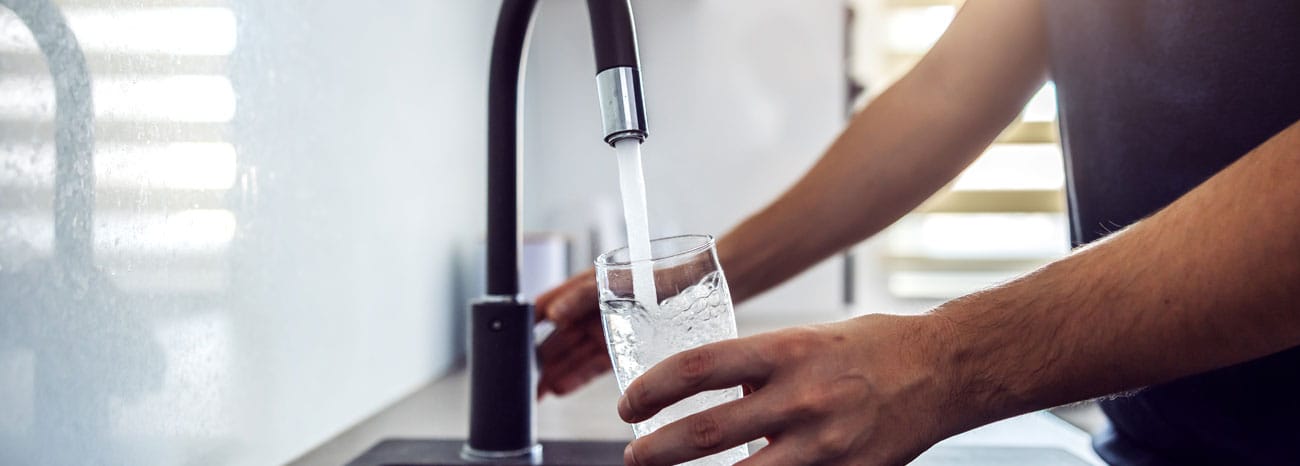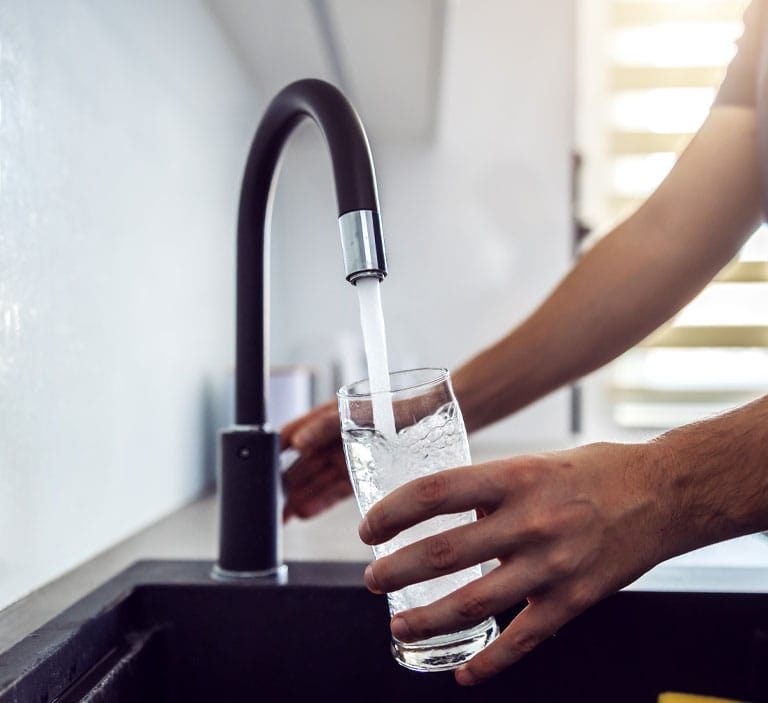The many benefits water softening can provide to you and your home.
What does a water softener do?
Water softeners, also known as water conditioners, remove mineral content from “hard water.” This process can also extend the lifetime of your plumbing by reducing scale build-up in pipes and fittings. Softening your home’s water provides you with cleaner, healthier water. The build-up of minerals in water can be harmful to your body, causing heart disease or high blood pressure, in some cases. In addition, sediment build-up from hard water can destroy your pipes and hot water heater.
How does a water softener save me money?
- Plumbing: As hard water moves through your pipes the minerals they carry stick, leading to the buildup of a scale that will eventually clog the pipes. This can lead to irreversible damage to your plumbing, resulting in a costly and time-consuming repair job.
- Appliances: Dishwashers, laundry machines, ice makers, coffeepots, water heaters and other appliances that use water can be adversely effected by hard water by lowering their quality and efficiency, but also resulting in shorter lifespans.
- Gas or electric bills: Scale buildup within your pipes results in a need for increased pressure to push the same volume of water through the narrowed passage. The pipe narrowing also reduces the efficiently heat transfer, forcing you to compensate by running your water heater at a hotter temperature.
- Soap and detergents: Softened water works more efficiently with detergents and soaps, resulting in more suds and a deeper lather for your body, clothes, and dishes. In addition, with a water softener, you no longer need to use hot water to remove the mineral deposits or better dissolve detergents in appliances like washing machines, meaning a gentler wash and a lower energy bill.
How does a water softener work?
House water softeners eliminate calcium and magnesium from the water through a process called ion exchange. As hard water enters into the mineral tank, it passes through a bed of spherical resin beads. These beads, usually made from polystyrene or another type of plastic, are negatively charged with a sodium ion, which attracts the positively charged calcium and magnesium ions and binds them to the resin, releasing the sodium ion in the process. The soft water passes out the other side of the beads and into your home.
As more and more water passes through the resin system, the beads eventually become depleted of their sodium ions and therefore their ability to pull the calcium and magnesium ions out of your water. Before this situation become critical, the control value on the water softener initiates a regeneration cycle, which pumps in a highly concentrated salt solution from the brine tank. This strips off the accumulated magnesium and calcium, which is flushed out of the system, while simultaneously recharging the resin beads with sodium ions so they are ready to continue their task of softening your water.
The brine tank will eventually run out of salt, and so it needs to be replenished occasionally using salt blocks or pellets.
How long does water softener last?
Our water softening process can last up to 15 years. Each case is different and dependent upon the hardness of the water.
How do I know if I need my water softened?
If you start to see stains on sinks and toilet bowls or you find brown/tan marks in your dishwasher that are hard to scrub off, you probably have hardness in your water. Other hallmarks include decreased water pressure, dry hair, stiff laundry or increasing water appliance repair bills. The best way to determine whether or not you need your water softened is to have a test done by a professional.
Many suburbs of Philadelphia are prone to hard water because of rocks, quarries, notorious in the area.
If you’re concerned about hard water in your home, call 215.799.2019 or fill out the contact form on the bottom of this page. We can answer any of your questions and begin the process of making water safer in your home.


